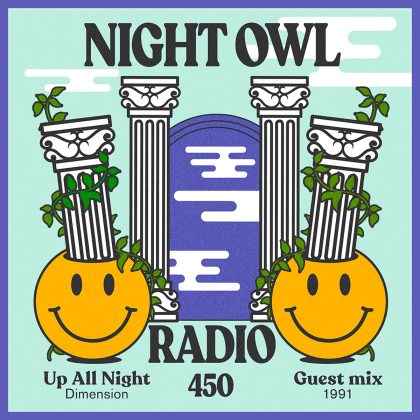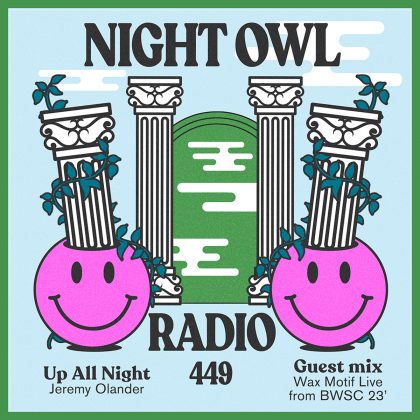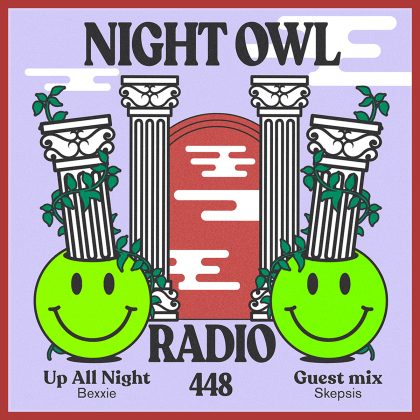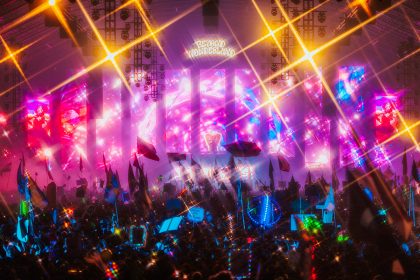Clinton VanSciver
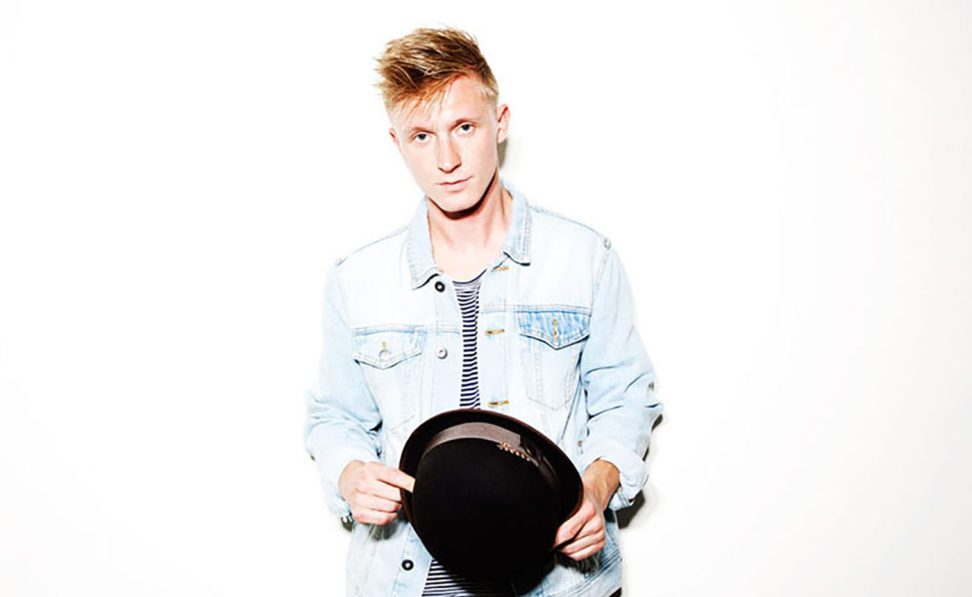
Origin: None
Looking back to just one short year ago, saying Clinton VanSciver has come a long way is an understatement. Formerly producing under the name Mister Perfect, Clinton VanSciver rocked the scene with “Love Letters,” his track with Swedish Egil which gained airplay on Power 106 in Los Angeles, and now he’s poised to take the EDM world by storm with originals and remixes on the way. He describes his music as “vyvanse and whiskey” with a sarcastic attitude,” but we’ll let you be the judge of that.
//
We listen to music for that little rush of excitement and inspiration; no matter how old I get, that feeling doesn’t change. Sometimes it comes from strange places, but it’s always truly sublime. I started writing music because I wanted to be able to create magic from nothing, and follow in the footsteps of my heroes. Dance music has always had a way of pulling at my heartstrings, and I wanted to be able to harness that energy in my own work. That’s what being a musician means to me.
Interview
Home Town: Salisbury, MD
Currently Living: Los Angeles, CA
Origin Of Name: It’s actually my real name; it’s pronounced “van-sky-ver” for those of you keeping score at home. I used to go by “Mister Perfect” as a joke, before I got serious about production.
Weapon of Choice: Sarcasm
Source of Power: I grew up listening to the Now! CDs, and I loved the melodies and production of pop music. I still listen to some of those songs, and have since acquired a taste for 90’s hip-hop and alternative. I’ve played guitar for 10 years now, and it’s safe to say I love anything with a bluesy feel. Dance music has always played host to a particular energy that I find very inspiring. I love the frankness and honesty in autobiographical songwriting, which you can find in any genre if you look hard enough. I know it sounds like a cop-out to say I listen to everything, but there really are elements spread across all genres that I like to draw from when I create a new song.
Was there one particular moment in the recording or mixing process for your Discovery Project entry that made you feel like you were creating something pretty damn special?
I was especially excited because this was the first time anyone had really heard my original track “Indie Anna Jones.” I had finished it a few months prior, but was looking for the right avenue to unveil it, and I figured what better opportunity than the Discovery Project.
Are there any dots to connect with where/how you grew up to your musical output?
I was shoved forcefully into the world of classical piano from the age of five, but ironically it had nothing to do with music. Neither of my parents have a musical bone in their bodies, despite my paternal grandfather being an orchestra leader in Pennsylvania over 50 years ago. The plan was that musical training would help me with mathematics. I don’t know whether that’s true, but I abhorred piano lessons back then. There was no creativity involved, and I had never even thought about writing a song of my own. Everything changed when I started playing guitar years later; my teachers encouraged creativity, and I started playing weekly gigs at local restaurants and pubs. I played everything from Clapton to “Sweet Caroline” by Neil Diamond (that one was always a huge hit) for a few bucks and a free dinner. Normally the musicians got open bar, but at the time I was far too young to drink; maybe that’s why so many restaurants hired me. Either way, it sure beat bussing tables or retail.
What do your parents think of what you are doing?
I’m always trying to explain it to them; I have older parents, so they were never even exposed to the 90’s rave scene. Believe it or not, when I remixed Armin van Buuren, I had to explain to them who he was. They’re still living back in southern Maryland, where they send the 8th-placing American Idolcontestant every year to play the Blue Crab Festival. So this is all very new to them, but they’re quite supportive. I like the idea that I can introduce them to something, when my entire life it’s been the other way around.
What’s the strangest part of your job?
I’m always amazed by how erratic my workflow is, despite my every effort to change that. Sometimes I can devote a whole day to production and come up with absolutely nothing usable, while other times I get on a roll and it’s magic for a few hours until the song is complete. It feels weird that my entire livelihood is supported by these sporadic bursts of creative energy, but I suppose that’s what’s so cool about music in the first place.
What’s the biggest misconception about being a DJ?
Honestly, how many hours alone in front of a computer screen you have to put in. My love for music got me into digital audio production, and learning Ableton from scratch and YouTube tutorials was one of the hardest things I’ve ever done. I like to compare it to guitar playing in that “skill” is a vast collection of tricks and habits, and perhaps that’s maybe even truer for producing. It’s a constant balance of sticking to your guns and trying out new techniques, with only your ear as a guide. It’s really tough to actually get an idea from your head into a DAW.
Tell me about your most memorable night out as an artist or as a fan.
I was invited to Steve Aoki’s Grammy afterparty at Drais Hollywood earlier this year, and the combination of free Red Bull vodkas and celebration shots, it got a little crazy. Afterwards, I decided I didn’t want to wait for a cab, and ended up getting socked in the jaw by someone who was unhappy with me cutting in line. That was the first time I’d ever been punched in the face, and it was kinda cool in its own way. Ever since, I’ve had two separate personalities, started an underground organization, and I’ve been seeing a girl named Marla Singer. Sorry if I ruined the end of that book for anyone.
How does what you do for a living affect you on a day-to-day basis?
Well, it used to mean constantly getting yelled at by my landlord for the loud music. Thankfully, I’ve since relocated, and things are cool now. As for my friends and family, I guess you’d have to ask them. This time last year, my mom was the only one liking posts on my Facebook page, so I guess that’s changed a bit.
What is your ultimate career dream?
Nothing quite that lofty, so far it’s only made sense to think shorter term. But only recently have I started playing shows where the audience members know the words to my songs, and that was definitely on the list.
Are you impulsive with your work or do you have a sketch in mind before you start?
In the studio, it helps me to have some sort of vision without pigeonholing myself. Especially for original tracks, I try to make every one a special project. The track I did with Tyler Demorest, “Finding Other Doors,” from my EP—that started with me wanting to make the first Beach Boys-esque dubstep song. Once Tyler and I began writing together, it kind of took on a life of its own, but I do believe having some kind of concrete starting concept helps. As for a DJ set, it’s a lot more on the fly. A huge part of performance is an energy exchange with the crowd, and how can you do that if you plan your entire set beforehand? Obviously there are certain tracks I plan on playing at shows, but I like to give myself a lot of breathing room. The worst thing would be standing up there nodding my head for five minutes to something the crowd isn’t feeling just because I planned it that way. So I’ve tried to keep myself from ever getting in that position.
How, if at all, does listening to music figure into your creative process?
For me, it’s usually live shows that have such an effect. There’s nothing more inspiring than seeing a crowd get excited about something, and festivals are useful for that because you get a taste of everything. From a songwriting standpoint, there are certain people who blow me away on a regular basis. Stevie Wonder and Freddie Mercury if we’re going old school, Toro y Moi and James Blake if we’re not.
What’s the most important piece of gear in your studio?
Everything changed when I bought my KRK Rokit 6 monitors. I can produce on headphones, but not before I picked up these big mini-fridge-sized behemoths did I really hear the push-pull and impact of certain sounds. It was a huge milestone in my production, and an unexpected one at that.
Do you have a list of people you’d like to collaborate with in the future?
Lately I’ve been really into visual art, and I’d love to have free reign to work on an animated piece with Ralph Steadman or David Shrigley. Steadman’s work was always the perfect complement to Hunter S. Thompson’s writing, and I admire Shrigley’s minimalism and sense of humor.
If we pressed Shuffle on your iPod while you went to the bathroom, what would you be embarrassed to come back to us listening to?
Oh man—where to begin. “Crazy” by Britney Spears is definitely on there, along with the entire soundtracks to Animal Crossing and Super Mario 64. Those soundtracks are pretty great for background sleep music…also I have quite the Phil Collins collection.
What sound or noise do you love?
I have always loved the sound of vocals through a vocoder. If you listen to my EP closely you’ll hear that just about every vocal track is layered with one, and that’s because I’m obsessed with that sound. I’ve listened to Black Moth Super Rainbow since high school, and “Hide and Seek” by Imogen Heap is another good one, if you want to know what I’m talking about. Sometimes talkboxes (Chromeo, Daft Punk) sound even cooler, but they’ve got to fit the track.
What should everyone just shut the fuck up about?
The proverbial “EDM Bubble.” Any genre with sampling capability will be around for a long time, and just because track sales are down doesn’t mean every major festival hasn’t grown exponentially in the past few years. And if it’s about the so-called “lack of variation,” just look at country music. No one’s written a country song that wasn’t about God, beer, or America in the past century, and that “bubble” hasn’t popped yet.
What gets you excited when you think about the future of electronic music and club culture?
I love that cab drivers in Vegas refer to it as “EDC Week” now because it’s the biggest of the year. I love hearing Calvin Harris and Zedd on the radio. Dance music is mainstream in America now, which in turn is forcing the underground genres within it to be even more inventive. Listeners will wrinkle their noses and argue about the difference between techno and tech house, deep house and nu disco, and that’s cool. At least people are talking about it now. Every year festivals get bigger, and more and more people get exposed to the music we all fell in love with; this is a good thing, and I couldn’t be more excited to watch the future unfold, and maybe even be a part of it.
When you look at electronic music and the surrounding culture, what worries you about the future?
We have to shake the stigma that somehow got leftover from the early 90’s rave scene—that the music is inseparable from the drugs. People are always going to do drugs at concerts—that’s not what I have a problem with specifically. But when people start to think you can’t have fun at a rave, or at a club, without being on some kind of illicit drug, that’s an issue. Because you can. Any statement to the contrary detracts from the genre’s credibility as a whole. Being apart of this community, that’s something we’ve got to stop from happening.
Do you have a secret passion?
Retro video games. I have an N64 that I take care of like it was my firstborn child, and I’m trying to get another NES (old one busted). New games are incredible, but there’s a unique charm about the older ones that I really love. Call it nostalgia or whatever, but I’m a huge fan.
Is success physical or internal?
It’s a little bit of both. There are some more intangible things that spell out success for me, like I mentioned earlier: people at my shows knowing the lyrics to my songs. But then a more basic measuring stick is simply that I’m able to do this for a living. I haven’t had to get a day job since I graduated, and that’s a huge deal for me. I’m endlessly thankful that my contribution to society rests on my creative pursuit; because that’s something I worked really hard for. Hopefully it shows.
What’s the hardest professional lesson you’ve learned thus far?
This applies to anything, really. My dad used to tell me when I was practicing for baseball: there’s always someone out there working harder than you. In a creative pursuit, there’s obviously a little more to it than just putting in the time, but that always serves to motivate me to be constantly working on fresh new material.
What advice would you offer someone thinking about entering the Discovery Project competition?When I entered the Discovery Project for Nocturnal Wonderland last fall, I remember noticing that the entry criteria focused on original composition. I really believe that’s the most important thing for any new artist to focus on, because that’s what makes you an artist. Anyone can mix someone else’s songs together in a set, and most people could even remix something. But to build something from the ground up? That’s tough. My advice would be to show that you have the spirit to create something original, and the tact to present it in a way that’s fresh and interesting.
Last words?
Thanks for reading this whole interview, I guess. If you like, tweet me something…I read everything.

